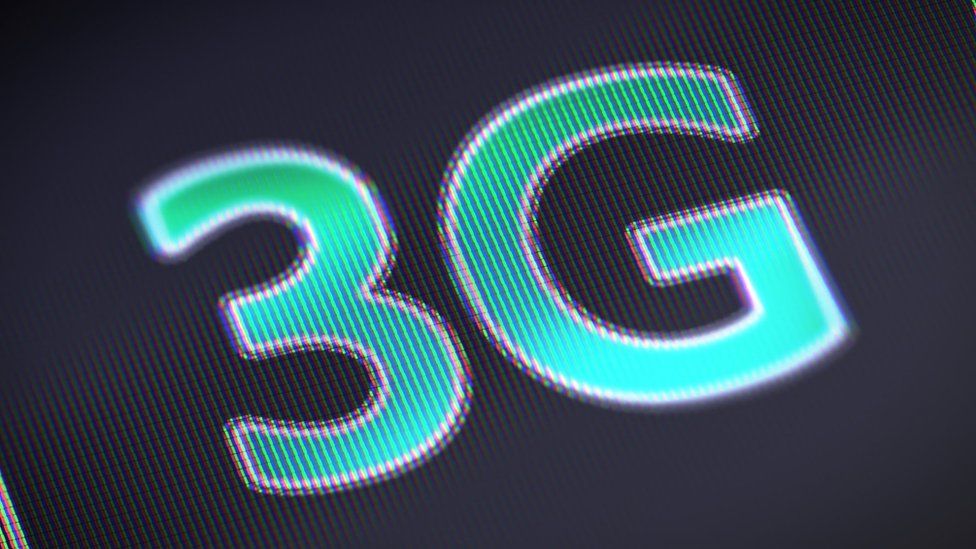UK to phase out 2G and 3G by 2033
- Published

The UK will phase out 2G and 3G mobile services by 2033, the government says.
The switch-off date has been agreed with mobile-network operators Vodafone, EE, Virgin Media, O2, and Three.
In July, EE owner BT revealed plans to phase out 3G by 2023, and 2G later in the decade. And many other companies have already begun phasing out technology that support the services.
Culture Secretary Nadine Dorries said the move would help the UK make a smoother transition to faster networks.
She said: "5G technology is already revolutionising people's lives and businesses - connecting people across the UK with faster mobile data and making businesses more productive."
The government also promised a funding boost to help future-proof the UK's mobile networks, ending the country's over-reliance on a small number of suppliers and making it easier for new equipment-makers to enter the market.
"Today, we are announcing a further £50m to put the UK at the forefront of mobile connectivity and to make sure our telecoms networks are safe and secure now and in the future," Ms Dorries said.
'Consumer-protection dimension'
Assembly Research founder Matthew Howett told BBC News the change would probably come sooner than the government's 2033 deadline.
The switch-off will affect all sorts of older devices, such as 3G-only smartphones.
And it would be crucial for the government to act on behalf of consumers who may be slow to adjusting, Mr Howett said.
"There is an important consumer-protection dimension to all this," he said.
"You will of course have some people who may still rely on a 2G/3G-enabled handset to make calls in emergencies but also because devices such as smart meters run off the 2G network.
"Involving these stakeholders will be crucial to avoid disruption."
5G coverage
In July, Amazon warned users some of its older Kindle models would soon be unable to connect to the internet.
"Starting in 2021, some prior generation Kindle e-readers will not be able to connect to the internet using cellular connection through 2G or 3G networks," the technology giant told its US customers.
Meanwhile, 5G coverage is being expanded across the UK.
In July, EE announced customers would be able to receive 5G "anywhere" in the country by 2028.
Related Topics
- Published23 August 2021
- Published14 July 2021